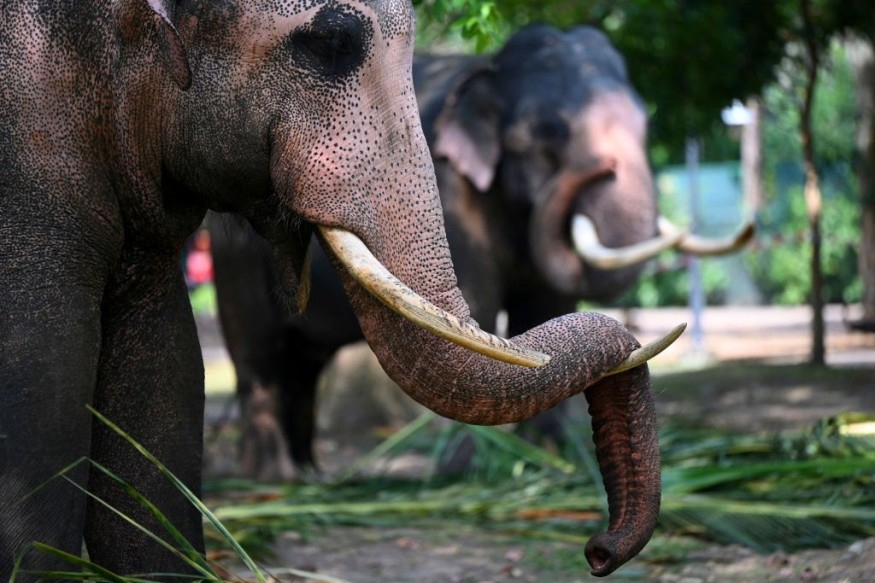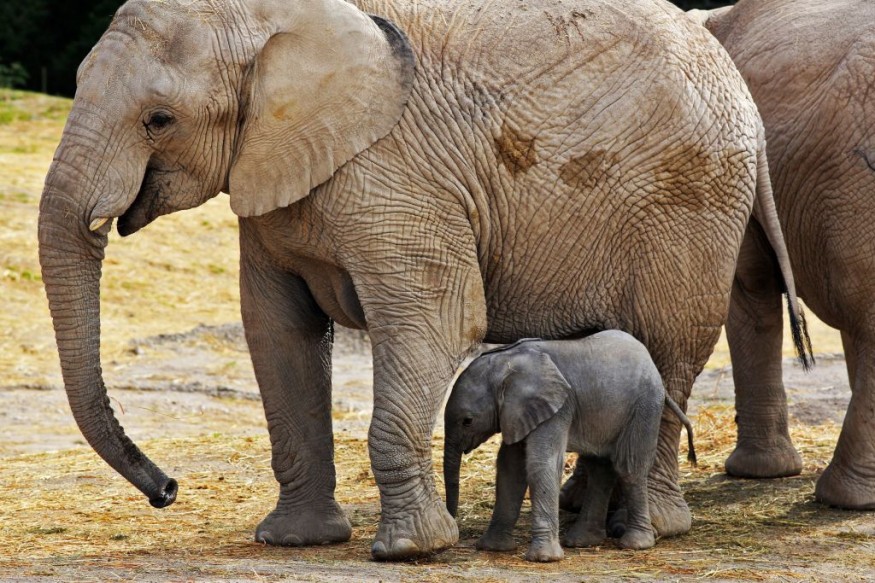Elephants are regarded as gentle giants. However, as global temperatures increase, climate change begins to take its toll, with human assaults rising.
Rising Cases

Elephants are believed to kill 500 people in India each year, often in crop-raiding instances. According to India Today, in 2021, elephant assaults have killed 3,310 individuals in the previous seven years. Villager vengeance has increased as events like these have increased. Crop poisoning became a popular method of revenge in 2001, with 60 elephants reported dead in North East India and Sumatra.
They trampled six people, including a little child, in India's Dhamtari area in April 2022, according to the Indian Express.
The large mammals are increasingly infiltrating farmlands in areas of Africa in search of food and water, especially during harvesting seasons. In the Namibian settlement of Otjorute, a herd of 28 elephants damaged 18 homesteads and fences in 2018. A troop of elephants assaulting farms in Ngaremara, Northern Kenya, was another major occurrence in 2021. Farmers threatened to kill the elephants at the time, but animal protection organizations intervened.
Turning Aggressive
Elephants are recognized for their gentle disposition, yet they can turn violent when disturbed, defenseless, or threatened. And these situations appear to be occurring more frequently due to climate change.
According to Niki Rust, an environmental and social scientist specializing in human-wildlife interaction, elephants do not become more violent when they are hot. However, climate change can create pressures, leading to more conflict.
Last year, the world saw some of the most intense heatwaves, notably in their nations.
Also Read : Botswana's Biggest Elephant was Killed for its Almost 8-Foot-Long Tusksby Trophy Hunters
Greenhouse Gases
The greenhouse gases in the atmosphere trap heat, causing the earth to warm. As a result, weather patterns are shifting, and extreme weather events are becoming more common. Water evaporates more quickly in hotter places as the climate changes, resulting in drier weather and droughts. If current trends continue, some experts believe that by 2050, some portions of Africa may be too hot for humans to live in.
Kenya has been suffering from severe drought for the past decade, with some of the worst circumstances in 40 years forecast.
Food and water supplies may be harmed due to the dry conditions.
"What happens is that animals get more desperate for food and water as climate change impacts the things that they rely on to survive," said Rust, who added that elephants have been known to destroy bore holes and wells in quest of water "even before climate change was a concern."
Climate Change Intensifies
As climate change intensifies, though, these occurrences are becoming more common. "This is since droughts will grow more frequent, more severe, and endure longer," she explained.
Elephants are at risk of starving if they do not receive the necessary nutrients. A severe drought hit Zimbabwe in 2019. According to the Associated Press, 600 elephants were transported to preserve their lives, with 200 of them dying within a month.
According to Lydia Tiller, research and scientific manager at Save the Elephants' human-elephant coexistence program in Kenya, human-elephant conflicts are rising across Africa.
"Unfortunately, we do not have a complete picture of the long-term implications of climate change on elephants... The number of elephants killed due to conflict has grown, and we are observing more and more drought years in Kenya, where I work, which is wreaking havoc on both humans and elephants."
According to Tiller, people are moving their cattle into national parks for grazing and water in several regions of the country, resulting in "massive overgrazing of resources."
"This is causing resource competition, forcing elephants to seek resources outside of parks, resulting in conflict between people and elephants over water supplies or farmland," she said. "Without dependable and good rainfall, this will only worsen," she said.
The incidence of crop-raiding elephant-related occurrences grew by 49 percent over 15 years, according to a report published in 2021 by the University of Kent. Farmers were also found to need to spend much more time safeguarding their crops.
Getting More Hostile

Elephants have gotten "more hostile, or [that] their disposition is changing," according to Tiller. Still, they are coming into contact with people more frequently, and more anger is directed at them. This can agitate elephants, causing them to take defensive positions.
According to Nikhil Advani, Director, Climate, Communities, and Wildlife at the World Wildlife Fund (WWF), climate change is increasing conflict, who told Newsweek that organizations must step in to help the world adapt.
He explained, "You have people and their cattle contending with creatures like elephants for decreasing pasture and water supplies." "People and animals also want water; in the Maasi Mara settlements, the women are generally responsible for collecting water; they must trek around four kilometers per day to acquire water, and in doing so, they are invading protected wildlife areas."
Challenges
Rainwater harvesting systems have been established in the communities to prevent women and elephants from coming into touch and vying for water, according to Advani. "Then we repaired a water supply that wildlife in the protected regions may utilize," he explained.
However, if climate change worsens, Advani believes that programs like these will become increasingly difficult to sustain.
"They're having to truck in water from all over the place because of the drought, and these are the types of things we need to keep doing," he said. "But there may come the point when it's simply not viable to do too costly or impractical," he said.
Related Article : Herd Matriarch Helped Struggling Baby Elephant Whose Mom Was Briefly Sidetracked During Journey
For the most recent updates from the animal kingdom, don't forget to follow Nature World News!
© 2025 NatureWorldNews.com All rights reserved. Do not reproduce without permission.





